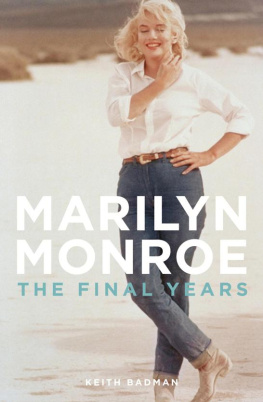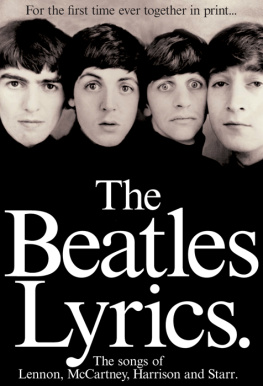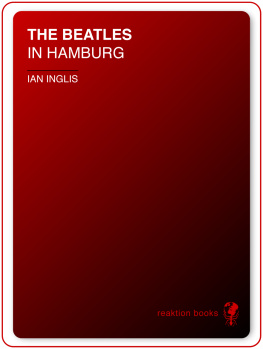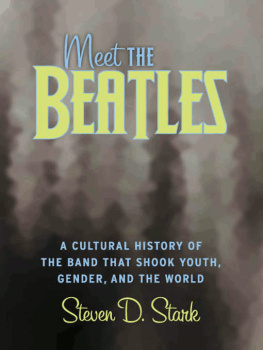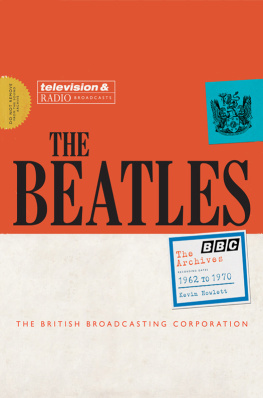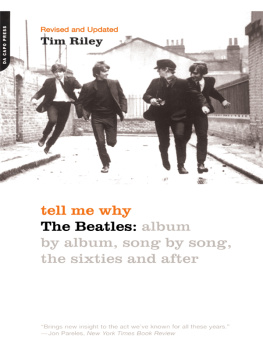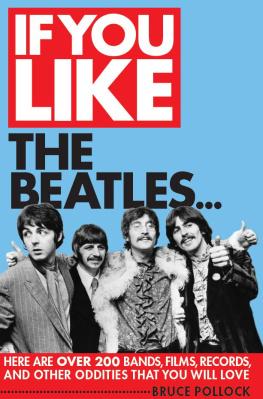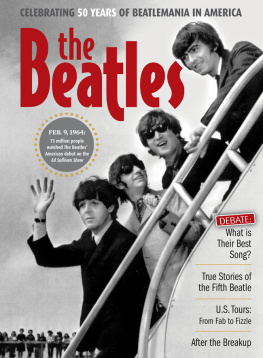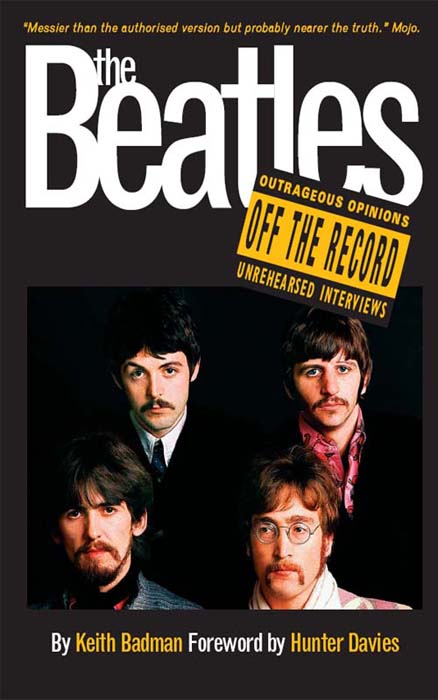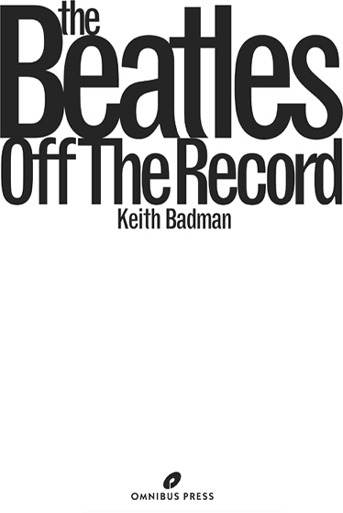Copyright 2000 Omnibus Press
This edition 2009 Omnibus Press
(A Division of Music Sales Limited, 1415 Berners Street, London, W1T 3LJ)
ISBN: 978-0-85712-045-8
The Author hereby asserts his/her right to be identified as the author of this work in accordance with Sections 77 to 78 of the Copyright, Designs and Patents Act 1988.
All rights reserved. No part of this book may be reproduced in any form or by any electronic or mechanical means, including information storage or retrieval systems, without permission in writing from the publisher, expect by a reviewer who may quote brief passages.
Every effort has been made to trace the copyright holders of the photographs in this book, but one or two were unreachable. We would be grateful if the photographers concerned would contact us.
A catalogue record for this book is available from the British Library.
Visit Omnibus Press on the web at www.omnibuspress.com
For all your musical needs including instruments, sheet music and accessories, visit www.musicroom.com
For on-demand sheet music straight to your home printer, visit www.sheetmusicdirect.com
contents
pre-1960
1 When I Was A Boy
1960
2 The Hamburg Treadmill
1961
3 Mr Epstein Visits The Cavern
1962
4 I dont like your tie
1963
5 Beatlemania
1964
6 America Falls
1965
7 Help Me If You Can
1966
8 Bigger Than Jesus
1967
9 A SPLENDID TIME
1968
10 A Group Apart
1969
11 Apple Crumble
1970
12 The End
foreword
This is a book Ive always wanted. Im a Beatles collector, not just a Beatles fan, and I have these piles of old newspapers, magazines, ancient tapes lying all over the house, getting scruffier every day, yellower round the ages, but arent we all.
They contain Beatles references and quotes, somewhere inside, but Ive never got round to arranging or even reading them properly. On the odd occasions I have done, to look up something Beatley, I have to plough through boxes and pages of stuff I dont want to read, about people and things long gone, before I come to the bit I want. Then I find myself sitting there, the hours going by, thinking gawd, this is fascinating, Id totally forgotten that, how amazing, did they really say this, did they really think that. Then I shove them back in the box, knowing I should sort them properly, file them sensibly. But I never do.
In a way, Keith Badman has done it for me. And for you. What hes done is track down every remark, every thought The Beatles ever made or recorded back in the Sixties, in even the most obscure or long dead publication or programme, picked the best and most revealing bits and presented them in a chronological and logical fashion.
He is, of course, a Beatles expert, far more expert than me, and has acquired or has access to hundreds of sources I never even knew existed. And because he knows more about The Beatles, factually, than The Beatles probably know about themselves, he knows the good bits, the meaningful bits, the give away bits.
This is valuable and fascinating for two reasons. Firstly, as a record, as a read with a narrative of its own, but also as a corrective. The remaining Beatles now have a habit of being highly selective when they are remembering being a Beatle. Not deliberately. We all do it, forget things, get the order wrong, put our own gloss on history. I have noticed all of The Beatles, including John when he was alive, making simple factual mistakes about themselves getting the order of their LPs wrong, giving incorrect years for important events.
When I was doing my authorised biography of them, all those years ago, I had terrible trouble getting them to remember how many times, for example, theyd been to Hamburg and the names and order of the clubs theyd played in. They gave contradictory answers. John could hardly remember anything. Yet Hamburg was vital in their life and had happened relatively recently.
I was there when the Sergeant Pepper cover was shot, and made notes, but some years later when I was talking to Neil Aspinall, their road manager and now boss of Apple, who was also there, we had different memories of that evening. So it goes.
Its good, therefore, to have this record of what was happening and being said by The Beatles and close associates at the time it was happening. This is not to say its all true and correct. We know, for example, that John always said lots of things for effect or to shock. But compared with some of their later selective and polished or faulty and fading memories, this is much nearer the truth. Well, as it appeared to be, at the time
Hunter Davies, May 2000
introduction
At around 7.00pm on Saturday July 6, 1957, John Lennon, then 16, met Paul McCartney, 15, for the first time. The meeting occurred in the church hall of St Peters Church in the Liverpool district of Woolton, following two appearances by Johns group The Quarrymen at the Woolton Parish Church Fete.
While her subjects enjoyed the fete, Her Majesty the Queen had watched the mens doubles finals at Wimbledon, during which Helen Jarvis of Croydon, Surrey, ran onto the court carrying a banner with the words God Save The Queen and We Women Electors Dont Want World Government stitched onto it. At a time when deference to the Royal Family was de rigueur, this was an unusually bold gesture. The country was steeped in the conservative values epitomised by its new Prime Minister Harold Macmillan, an old school Tory more at home on the grouse moor than anywhere else.
The previous week in the House of Commons MPs were discussing proposals to raise their annual salary from the present 1,000 to 1,750 a year. Elsewhere Lord Aberdare, the chairman of the National Association of Boys Clubs, talked of his concern about the increased drunkenness among the young. There was a sit-down strike by 34 fitters and welders employed by the Steel Company of Wales at Port Talbot. Lightning, in one of the many thunderstorms which caused damage in various parts of the country that Saturday, killed 14-year-old Albert Timms of Walthamstow, in camp at Mundesley-on-Sea, Norfolk. It was announced that 60 lengths of roads in the London area had been selected for an experimental introduction of a forty miles per hour speed limit. Also on Saturday July 6, the Rent Act came into force, whereby no controlled rent could rise before September in Scotland or October elsewhere.
Currency
1 = 20 shillings; and 1 shilling = 12pence. (NB: one shilling is the equivalent of about 5p in todays currency; one guinea = 1 1s.)
The pound against the dollar
The pounds value against the American dollar was 1 = $2.78.
Wages
At work, the average wage earner is collecting 506 a year and the average salaried employee earns 764. In real terms, the factory floor man is around 27% better off than he had been in 1949 and the office worker, about 10%. Samples of annual pay A police constable is on 490, a teacher 1,275 (a sum not increased for two years), a nurse 478, and a clerical worker 523. Weekly pay A train driver is earning 11 1s 6d, a bricklayer 9 18s and a baker 7 15s 3d.
Your shopping basket
A tin of Nescaf is 3s 6d, a quarter of Typhoo Tea is 1s 9d, Birds Custard is 1s 8d, a pound of potatoes is 3d, a large loaf of white bread is 4d, a pint of milk 7d and a


